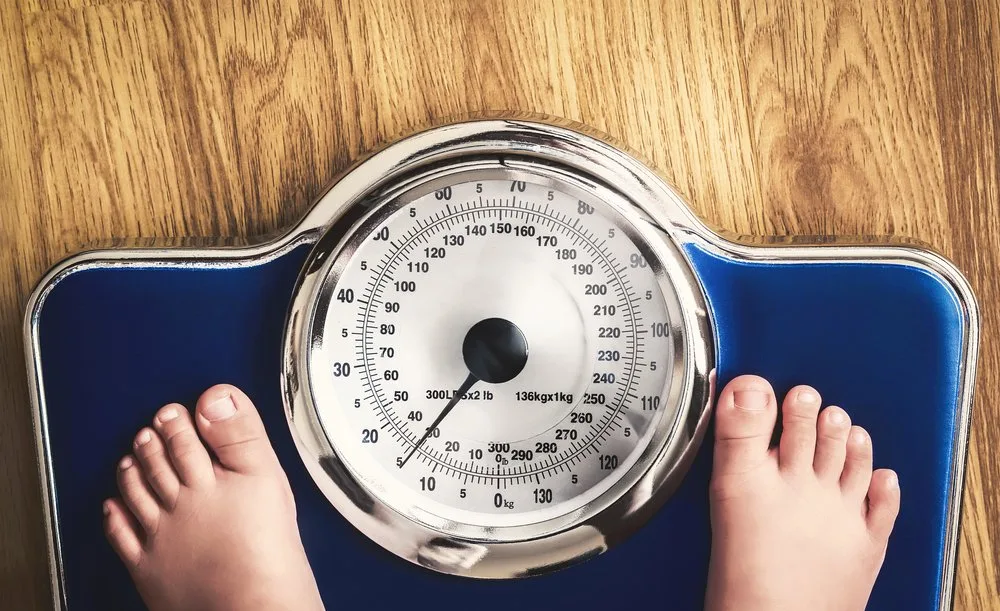Maintaining a healthy weight is important for people of all ages, but it’s particularly important for people in their teenage years. Teen obesity is a growing problem in the US. Despite the health risks, around 21% of people in the United States aged between 12 and 19 years old are thought to be obese.
While keeping your body at a healthy weight is not easy, being overweight has the potential to cause problems in the short term, and the long term. Here, we take a look at some potential complications caused by obesity in teens, and what adolescents can do to help keep their weight at healthy levels.
Health Risks Of Teen Obesity
As we mentioned, being obese can lead to a range of potential health problems. Such problems can be physical, while others can be psychological. Some of the most likely to be experienced are:
Heart Disease
Heart disease is a term used for a range of conditions that affect the heart’s ability to pump blood around the body. One type of heart disease associated with obesity is coronary artery disease. Coronary artery disease is a condition where fatty substances have accumulated in the blood vessels. Potentially causing them to become blocked. Heart disease can be very dangerous and should always be treated as such.

Photo by Sharon McCutcheon on Unsplash
Diabetes
Diabetes means the patient is unable to control their body’s blood sugar levels and is a condition that can be caused by obesity. Diabetes can cause long-term permanent damage to the body, can cause a range of unwelcome side effects, and can also be a threat to the patient’s life.
Diabetics will need to use insulin to help manage their blood sugar levels, and they will also need to be careful about what they eat.
Psychosocial Effects of Teen Obesity
Teenagers are at a time in their lives when their physical appearance means a lot to them, more so than people of other ages. Obesity may also cause other people to make mocking remarks, making people even more self-conscious about their appearance. These problems can have a severely detrimental impact on a person’s life. Potentially leading to psychological conditions including depression.
Set realistic goals
It is impossible to go from overweight to thin overnight. Habits take time to change. Which is why it is important to set realistic goals to help a teen achieve their weight management goals.
Research has shown that setting SMART goals helps achieve weight loss. SMART goals are Specific, Measurable, Attainable, Realistic and Timely. When a family works together using these goals, the potential for success is greater.
High Blood Pressure
Obesity means the heart has to pump harder to pump blood all around the body. This puts strain on the blood vessels. The blood vessels then resist this strain, causing the blood pressure to rise as a result. High blood pressure can cause a range of side effects and can also be life-threatening.
How Teens Can Manage Their Weight
The good news is that steps can be taken that will help people, including teenagers, to lose weight. Here, we take a look at some of the most common and most effective actions you can take to help a teen lose excess weight.
Helpful Guidelines for Teens
Teenagers should be mindful that losing weight and maintaining a healthy weight may require ongoing changes in their lifestyle. The changes don’t necessarily have to be extreme. They can often be integrated with your day-to-day life. With little to no disruption. Some changes, like exercise, can take more effort. They sure can open up a whole new way of life that you won’t want to turn back from.
Perhaps the most common contributing factor behind stress is diet. A study in 2018 shows that around 37% of adults in the United States eat fast food every day. Instead of opting for fast food, try and eat fresh food more regularly instead. It can still be delicious, and it can even be more affordable, while many fresh food dishes are also very easy to cook and can then be kept in the fridge ready for mealtime.
Drink More Water
Drinking water helps you to burn more calories, and burning calories is one of the key factors behind losing weight. In some cases, it’s not even necessary for somebody to make lifestyle changes to lose weight, other than drinking water. Not only can drinking water help you to burn more calories. It also helps make people feel full, reducing how much they are likely to eat.

Photo by Jonathan Borba on Unsplash
Exercise Regularly
Another of the more obvious ways to lose weight is to exercise regularly. Exercising burns more calories, which means burning up your fat reserves while building muscle. It will also help you to burn more calories even when you are resting.
Although, getting a gym membership or joining another sports club will help you get the best results. Such dedicated exercise is not always necessary. In many cases, you can get the exercise you need by doing things like walking to the nearby store instead of driving. Also, try to take part in fun activities with friends and family instead of sitting at home and watching TV.
Manage Stress
Another potential cause of teen obesity is stress, making it even more important for people to manage stress levels as much as possible. Teenagers will often have exams and other contributing factors that can cause them to become stressed. While pressure from peers and society, in general, is another common contributing factor.
If somebody of any age is stressed, then it’s important to try and relieve as much of the stress as possible. Stress is potentially very serious indeed and should not be taken lightly.

Photo by Kelly Sikkema on Unsplash
Conclusion
Being a healthy weight is important for people of all ages, and teens are no exception. Indeed, teens are at a stage in life where being a healthy weight is more important in some aspects than it is for people in other age groups. Regardless, if somebody is overweight (or underweight), they should do what they can to reach a healthy weight and stay there.
Teen obesity does not have to be a life sentence to bad health. Losing weight is not easy to do, but still very achievable. It doesn’t always take extreme diet and exercise regimes. Follow the brief guide above, and you could be well on your way to reaching and maintaining your ideal weight eventually.
Who Is The Author?

Olivia Parker
Olivia Parker has been a content writer for almost four years. She believes in healthy living and expresses her thoughts occasionally on thewebaddicted.com




![women [longevity live]](https://longevitylive.com/wp-content/uploads/2020/01/photo-of-women-walking-down-the-street-1116984-100x100.jpg)










